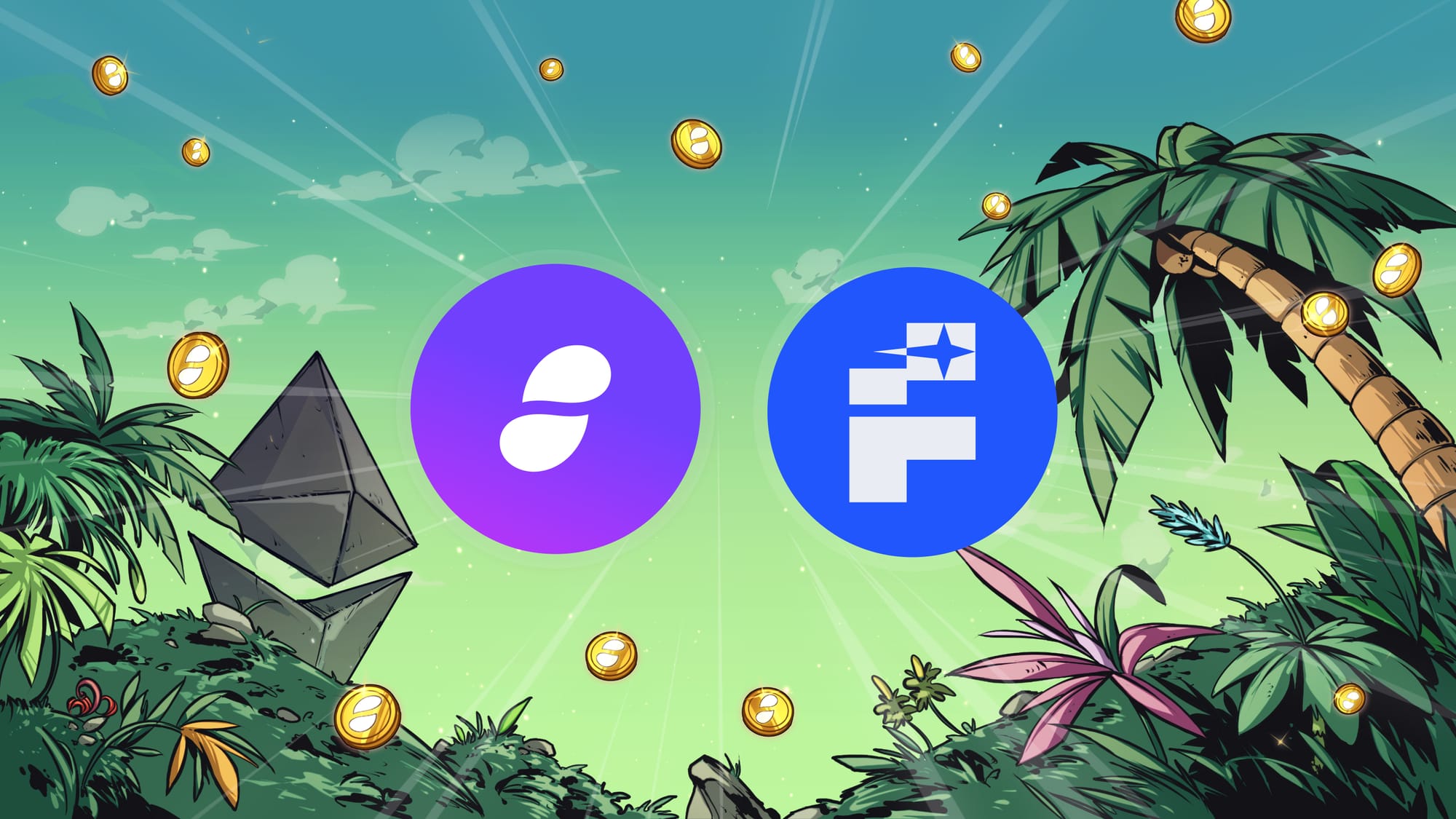We’ve Been Building The Whole Time

Status was founded back in 2017 with a mission to create an open, decentralised platform that defends human rights, enables free speech, protects privacy, and promotes individual sovereignty.
Our mission was, and remains:
To empower individuals to achieve their aspirations and create a better future for all, by leveraging innovative decentralised technologies to create a virtual space where freedom, liberty, and human sovereignty are protected, and censorship resistance is ensured.
We believe a free cyberspace will enable people to innovate and experiment with new forms of human organisation and societal governance, freed from the constraints imposed by centralised institutions and monopolistic tech platforms.
Our existence defends civil liberties and free speech, and aims to gift the world a platform that creates a new bazaar of open, decentralised and permissionless innovation, directly accessible by every individual worldwide.
Back in those early days of web3, Status hoped to create a consumer collaboration product that brought the benefits of online freedom to everyday users by integrating the new open-source decentralised computing infrastructure that seemed to be emerging at the time. Ethereum blockchain for coordination, Ethereum Whisper for messaging, and Ethereum Swarm for storage.
But this hope of using infrastructure created elsewhere to build the platform we dreamed of proved overly optimistic. Solving the problem of scaling blockchains without sacrificing decentralisation has taken longer than anyone anticipated; the Whisper project was abandoned, and a fully decentralised storage layer that is both highly performant and where data durability guarantees are handled at the protocol level remains a work in progress.
With the cancellation of Whisper, Status’ most pressing concern was the lack of a decentralised messaging layer with strong privacy properties. So Status forked Whisper and renamed it Waku, picked up development, and Waku v1 was born.
The Status app vision has always been to create a ‘super app’ similar to WeChat or LINE, but fully decentralised, permissionless, 100% open source and with strong privacy guarantees. Basically an OS (Operating System) inside an app, with local node services for blockchain, messaging and storage, on top of which users can run truly decentralised dApps that don’t rely on any centralised infrastructure. Add in a strong social communication layer that dApps can directly tie into, and Status aims to bring this all together into an unstoppable collaboration platform that delivers online self-sovereignty to individuals and communities worldwide. A lofty and ambitious goal!
In 2017 Status started building and scaling up the org to the resource levels needed to achieve this ambitious vision. But then the 2018 crypto crash happened, with the price of ETH falling 95% from its peak. Like many other orgs in the space, this impacted Status and necessitated a painful and sad layoff, substantially reducing the size of the organisation (we’ve learnt from this lesson and are now well positioned to execute and grow through the current bear).
This, combined with the realisation that we would also have to build the infrastructure we needed (like the Waku messaging layer) ourselves, meant that we suffered the simultaneous double hit of a very large decrease in our development capacity and a significant increase in the scope of what we had to build. Nonetheless we persevered through the bear, and in February 2020 Status Mobile 1.0 launched.
Status Mobile 1.0 contained a messaging app, a wallet app and a dApp browser. With the mobile app released, we started pushing its growth, but didn’t achieve the traction we were aiming for.
Status’s key feature was messaging, but the world isn’t short of messenger apps. It’s common for many folks to have 3, 4 or even more messaging apps on their phone. Why would a person install and start using a 5th messenger app, especially if none of their friends are using it? In the privacy-centric messenger space, Signal (despite its shortcomings) is the entrenched competitor with dominating network effects. The messaging space is a mature field where network effects are the predominant factor in the battle for market share. As a new entrant with zero pre-existing network effects, even with Status’ superior privacy properties (Metadata privacy!), competing in this space was challenging.
For Status Mobile 1.0’s wallet, we focused on creating features which tied into Status’ messaging functionality, like buying Stickers, sending small amounts of funds between chat users and reserving ENS names. However Ethereum didn’t scale as fast as was expected at the time, and high gas prices on mainnet priced users out of using these features. And with limited resources necessitating a focus on building the messaging side of the app, other wallets surpassed Status wallet in terms of DeFi and NFT integrations.
And added to this, Status Mobile 1.0’s user experience wasn’t competitive with market-leading traditional centralised apps. Status’ ambition has never been limited to competing solely in the blockchain space for existing blockchain users. To fulfil Status’ mission of bringing freedom of speech, freedom to organise and freedom to transact to the world, Status ultimately has to become the communication and collaboration super app used by hundreds of millions (or more) of ordinary people worldwide. This is only achievable if Status becomes the app that fulfils people’s needs better than any other app! In order to meet and exceed the expectations of today’s centralised app users, the Status app had to hit a higher user experience and usability quality bar.
We pushed on iteratively improving Status Mobile with limited resources. Still, when it became clear that iteratively improving Status Mobile 1.0 wasn’t going to be sufficient to hit our growth and retention targets, the question became what to do.
Around the beginning of 2022, we decided to shift direction and refresh our app strategy. Our updated approach is based on our learnings to date and focused on overcoming the challenges experienced with Status Mobile 1.0.
After operating on minimal resources since the 2018 crypto crash and the associated layoffs, the previous actions taken to conserve Status’s treasury finally paid dividends. The 2022 bull market endowed us with the financial wherewithal needed to execute Status’ updated strategy, so the next step was to scale the org back up to the resource level required to realise our ambitious vision.
The main tenets of Status’ updated strategy are:
- 1Status Communities
To bring content and communities to Status, so people who want to engage with these communities and content have a compelling reason to use Status regularly. - 2Waku v2
To fix the scalability issues inherent in Whisper/Waku V1. - 3Multi-chain Wallet
To solve today’s multi-chain UX challenges in order to make blockchain usability competitive with traditional centralised financial services. - 4First-class user experience
To deliver a user experience that exceeds the expectations of users accustomed to using competing centralised products. - 5Cut scope, raise quality
Build fewer things better. Because users value a product that does some things very well over a product that does many things jankly.
All while remaining true to our principles, keeping everything p2p and not compromising on permissionlessness and decentralisation.
2022 was Status’s year of growth, and during this year we focused on recruiting, rebuilding and growing the design and development teams needed to deliver our roadmap. By the end of 2022 we had succeeded in recruiting and onboarding around 75% of the resource level we were targeting, while simultaneously improving how we approach design, development and cross-team collaboration. For the last 12 months, Status’ design and development operations have been firing on all cylinders, and our velocity and quality keeps improving 🙂. Status is now consistently ranked as being in the top 10 of *all* crypto projects in terms of development activity (most recently ranked as second highest and sixth highest by different sources) and has been successfully hitting internal release milestones on a regular cadence.
Building a product that is decentralised and permissionless is ~10x more effort than building the same functionality in the traditional way with a server. Things that would be trivial to do on a server (or by involving a central actor) have ended up costing us multiple person-years of effort. Also, building a consumer user experience to a standard that meets and exceeds the very best centralised competitors in the space is another ~10x more effort than building something that 'technically works’ but isn’t a joy to use.
The payback for all of this additional effort will be a suite of apps and products that fulfil the self-sovereign decentralised communication, collaboration and computing cypherpunk dream, with a user experience that brings this free metaverse to all individuals (not just blockchain geeks) worldwide.
With the launch of the status.app website, we are excited to share Status’s new direction and brand and give the world a preview of the new, still under construction, Status super apps.
From this point onwards, we are going to be building in the open, and we are looking forward to hearing your thoughts and feedback on what we’ve been hard at work creating over the last two years.
Head to the new status.app website to learn more about the upcoming Status Mobile 2.0 and Status Desktop 1.0 apps! We also have a Status Web product in the works (which is at an earlier stage of development) that will let users access Status’ Messaging and Communities group chat functionality from any web browser; 100% client side, no servers involved 🙂.
The reveal of Status’ new direction and Status’ new under-construction super apps is only the beginning of the journey. There’s still much work to do ahead.
Next up in the coming months; Status Desktop’s first public ‘early access’ beta release. We’ll let you know when this release is ready to use. We’ll be pushing as hard as possible to get this first Status Desktop beta into your hands ASAP!
Later next year this will be followed by Status Mobile 2.0’s first public ‘early access’ *alpha* release, the first app to feature Status’ new design language. As an alpha, this first release won’t be feature-complete. Still, we think you’ll find some of its early functionality super cool and delightful!
Status won’t rest until it's the super app used by millions of ordinary people worldwide. We don't expect people to use Status just because Status is built on blockchain and other decentralised technologies. We expect people to use Status because Status meets their needs and wants better than any other product on the market, in ways that are only possible due to Status' total commitment to permissionlessness and decentralisation (ways which are fundamentally impossible for any centralised competitor to replicate). If Status succeeds, the individuals who use Status will serendipitously find themselves part of new virtual worlds where freedom, liberty and human sovereignty are protected and where they can communicate, collaborate, innovate, and transact in a truly free way.
Follow Status on X then head to status.app and sign up for Early Access to be the first to hear about the latest developments!



